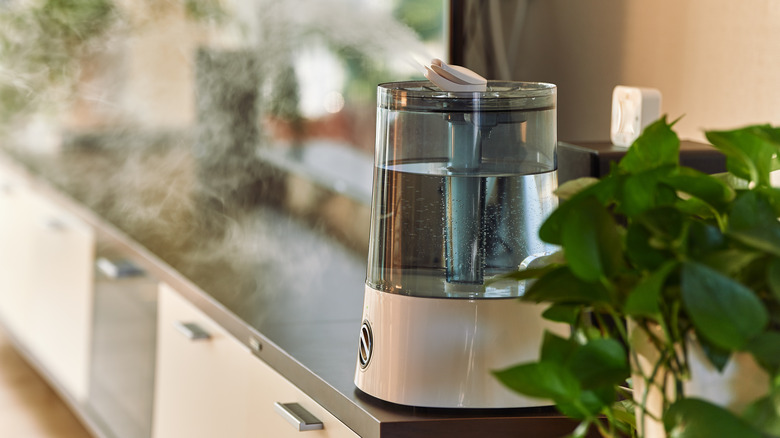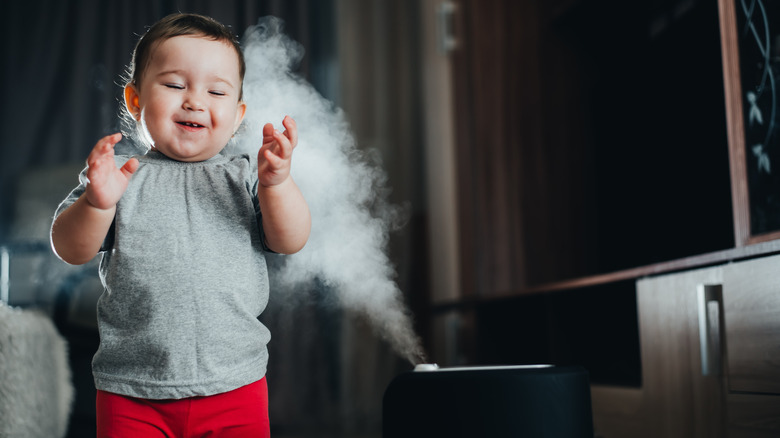Do Cool Mist Humidifiers Kill Germs In Your Home?
Unlike warm mist humidifiers, cool mist humidifiers don't need a heating element to work (via BobVila.com). Instead, they release room-temperature mist throughout the space using evaporative or ultrasonic technology. Evaporative humidifiers use a built-in fan to speed up the evaporation process and increase humidity in a room, whereas ultrasonic humidifiers use high-frequency sound vibrations to create "extra-fine" water mist (or droplets) that's then released into the air, per The Spruce. Because ultrasonic humidifiers can work without a fan, they're typically quieter. They're also filter-free and consume little electricity, making them an energy-efficient option.
Evaporative humidifiers tend to be a bit larger, thanks to the built-in fan, filters, and refillable tank. In addition to their size, evaporative humidifiers are more expensive to operate when compared to ultrasonic humidifiers.
But can these humidifiers kill germs in your home or — conversely — actually lead to the spread of germs? Keep reading to find out.
The problem with cool mist humidifiers
Unfortunately, ultrasonic cool mist humidifiers pose a number of health issues if used incorrectly. They work by transforming water into a fine mist via high-frequency vibrations. The problem? Everything that's in the water is turned into mist, too. "Bacteria, chemicals, minerals, mold — they aerosolize all that stuff to the right particulate size that you breathe it right into your lungs, and it can be toxic," says Robin Deterding, M.D., medical director of the Breathing Institute at the Children's Hospital of Colorado. "One of our patients developed chronic lung disease symptoms. We eventually figured out it was the humidifier."
Even though evaporative humidifiers are equipped with a wick filter, the Environmental Protection Agency doesn't recommend using tap water or most bottled drinking water in any cool mist humidifiers, which can lead to minerals being dispersed into the air. While it's OK to drink tap and bottled water, these minerals — in addition to whatever bacteria or mold that's in the humidifier — can cause a type of white dust to settle on furniture and other surfaces within your home. That's why it's so important to ensure you're using distilled water in your humidifier.
What's worse? If you use a chemical-based product to clean the humidifier, those chemicals get pushed into the air, too. Buying an anti-bacterial humidifier isn't going to help, either. According to Consumer Reports, even "antimicrobial" humidifiers can be harmful to one's health.
The bottom line? Unless you're willing to clean your humidifier daily, you should probably stick to using saline nasal drops to alleviate dry nasal passages.

